To gather and eat is at its core one of the most foundational and quintessential parts of being human. Whether it’s as small as talking over coffee or a more involved endeavor such as cooking a meal and passing it from plate to plate along a large dining table full of people, food is an all-powerful connection point.
It takes no time to see the ways in which food is celebrated and enjoyed by students across Cal Poly’s campus, with cultural clubs embracing their dishes and uplifting one another’s identities, while others work to promote sustainably-sourced produce and increase student accessibility to healthy meal options. At the root of every club or social gathering, food is the grounding reminder that we are all interconnected at the most basic and organic level.
Real Food Collaborative
The Real Food Collaborative (RFC) formed in 2016 and has grown over the years as a space for dedicated Cal Poly students to collaborate in advocating for sustainable and healthy eating through provisions of locally-grown foods. Intertwined in RFC’s core interests and goals are “the power of potlucks,” as the club’s mission statement reads.
Hosting free community events every other Thursday night at various club members’ houses, RFC encourages people to bring their own plate and utensils, as well as a dish to add to the communal table. In exchange for their contributions, they get to take part in the energetic and accepting environment that RFC fosters, fueled in large by the love poured into the homemade meals that scatter the tables.
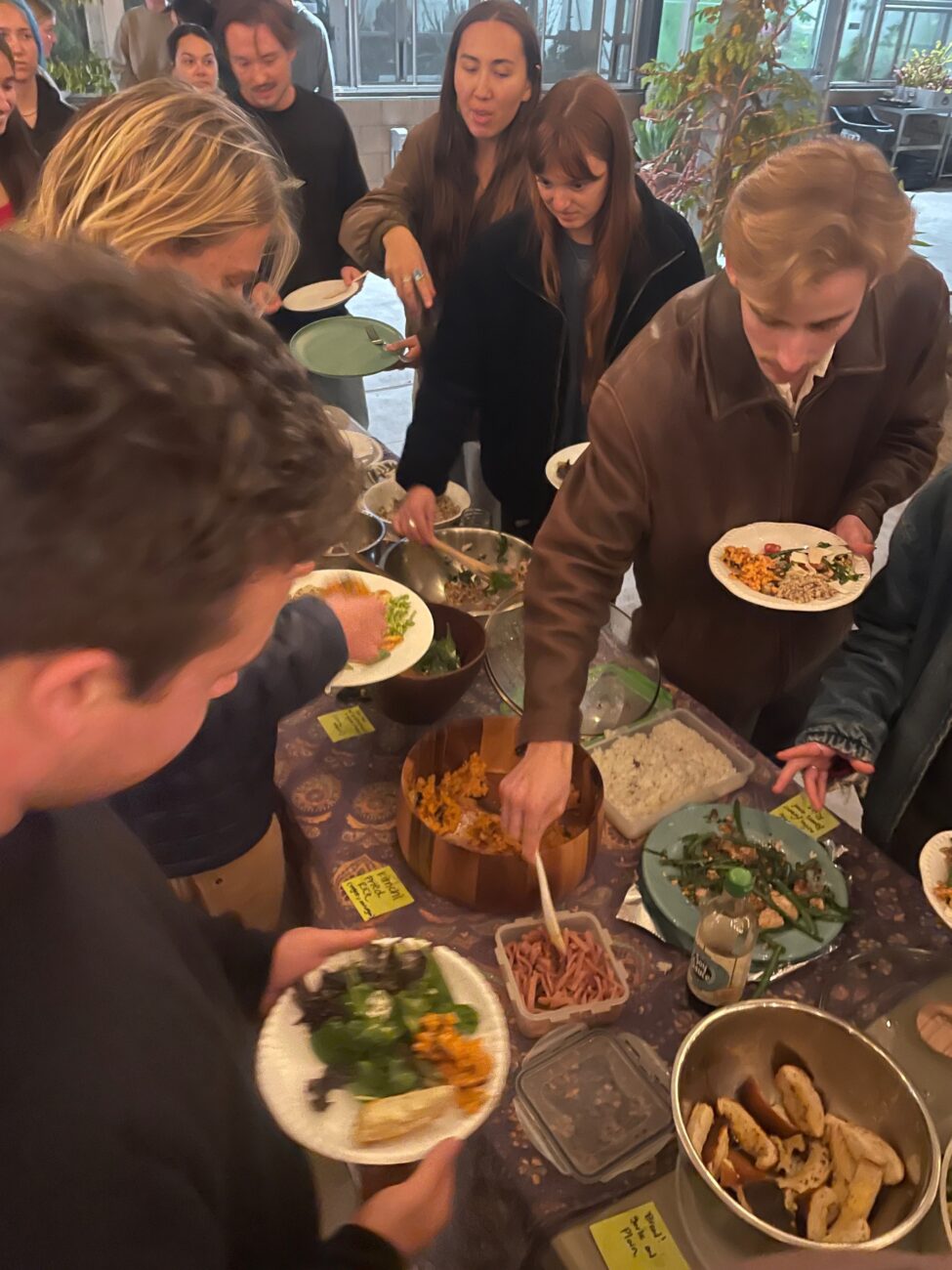
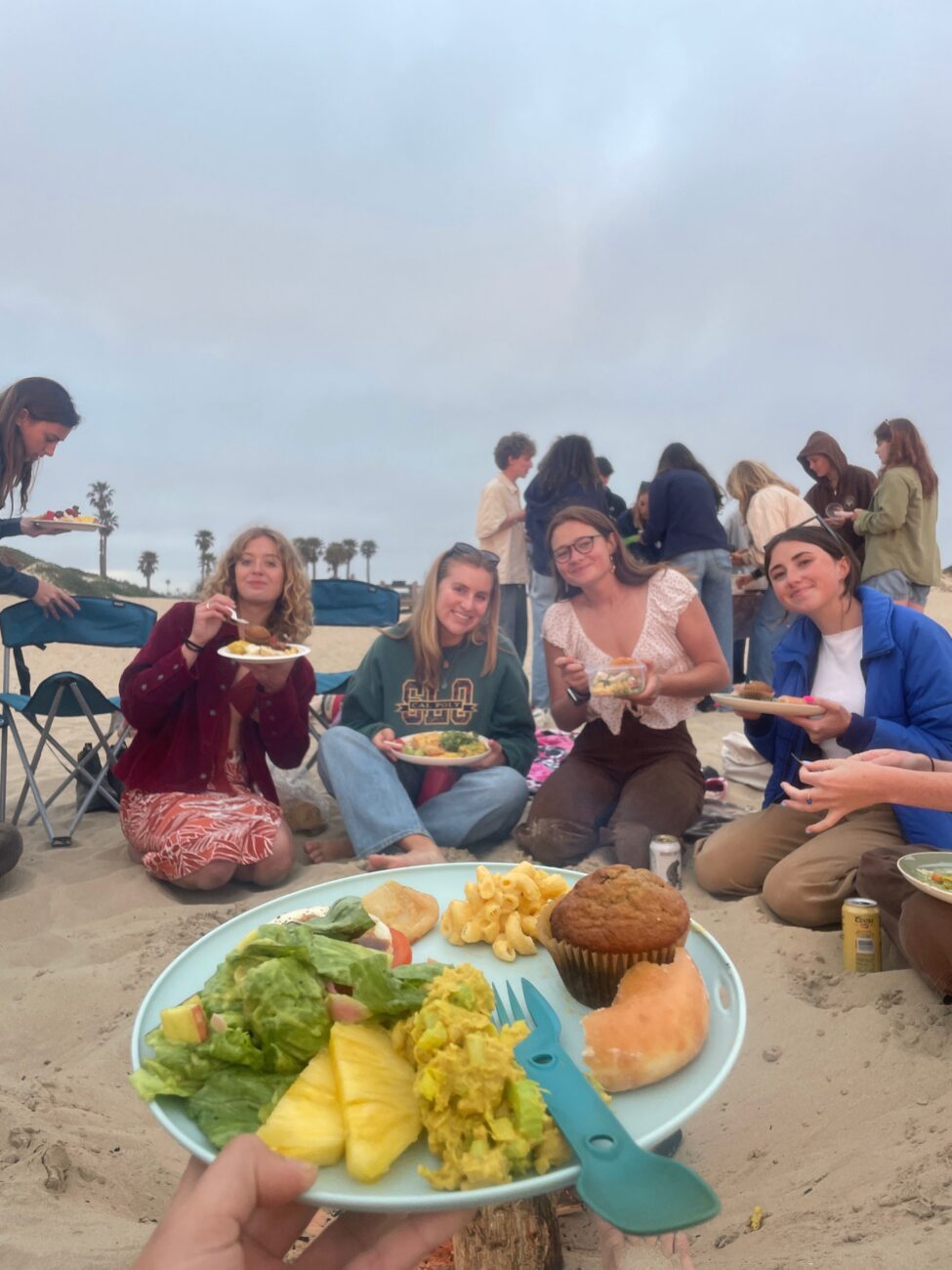
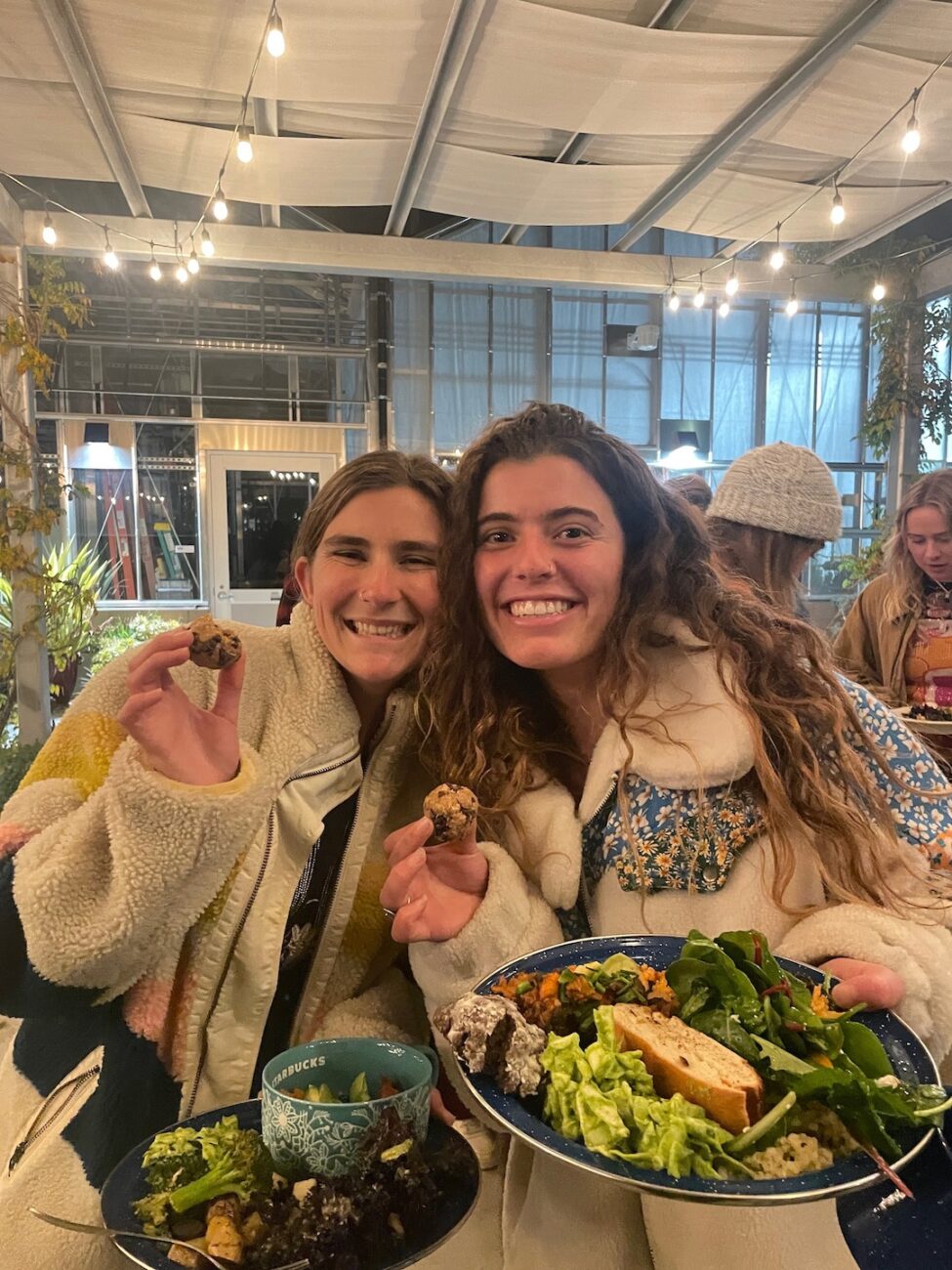
It is with a plate in hand, filled with a fresh mixture of home cooked meals and flavors, that enjoying the company of existing friends and embracing the creation of new ones comes easy. Food, for many, is the thing that bridges the gap between people and opens up conversation.
“Because everyone has different types of food they enjoy that bring them comfort, it’s nice to hear the stories behind everyone’s dishes,” RFC president and agricultural science junior Katie Kelly said. “There is a connection and collaboration of ideas when people share, ‘Oh, I got this squash at the Farmers Market’ or ‘This is the recipe my mom made for me when I was young.’”
In attempts of increasing accessibility and connecting students more deeply to the foods they eat, RFC also offers a subscription-based produce box that includes seven to 10 fruits and vegetables growing on the Cal Poly Organic Farm.
With the investments from Cal Poly, as well as students and faculty, comes a share of the farm’s harvest. Fresh lettuce, chard, squash, tomatoes and melons – depending on the season – spill out of crates laid out by club members on Dexter Lawn on Wednesdays from 2-4 p.m., where students can pick up their bi-weekly share.
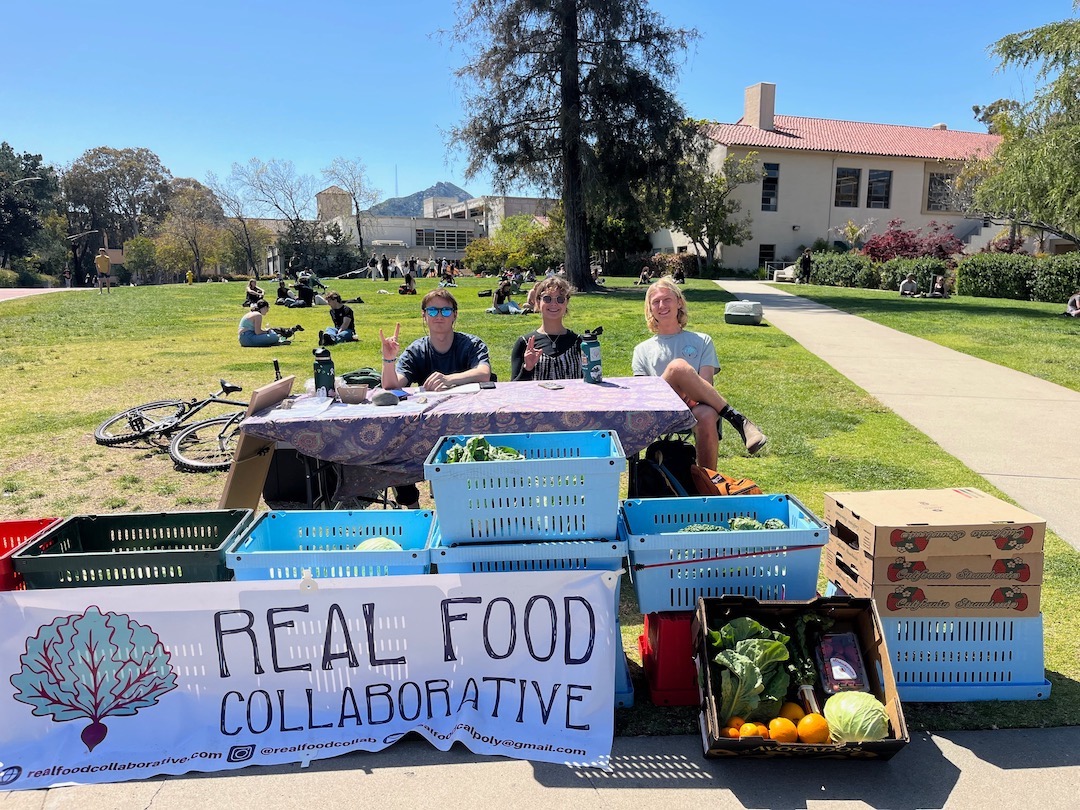
A lot of the produce purchased in the RFC subscription boxes is shared by students, encouraging collaboration as they cook together and work to incorporate as many of the fresh ingredients as possible.
With Cal Poly as a major agricultural school, RFC believes in providing students access to the abundance of Cal Poly grown food harvested nearby, creating opportunities to feel a sense of connection and familiarity with where their food comes from.
“There’s great value in knowing that the food you are consuming was grown close to you,” Kelly said.
A portion of the farm’s produce is also donated to the Cal Poly Food Pantry, further dispersing the fruits and vegetables to students and providing increased accessibility, so no matter one’s financial situation, their plates can include a greater variety of produce.
Even at the RFC 2023 Halloween potluck hosted on Oct. 26, produce originating from the Organic Farm was included in a variety of the dishes brought by students. Among the diverse mix of cooked meals, dips and baked goods filling up the potluck tables were bowls of pasta salad with roasted squash and fresh vegetables from the farm.
Especially for college students, with many not having access to homemade food or a set time to enjoy a meal with others, there is great value in these potluck events.
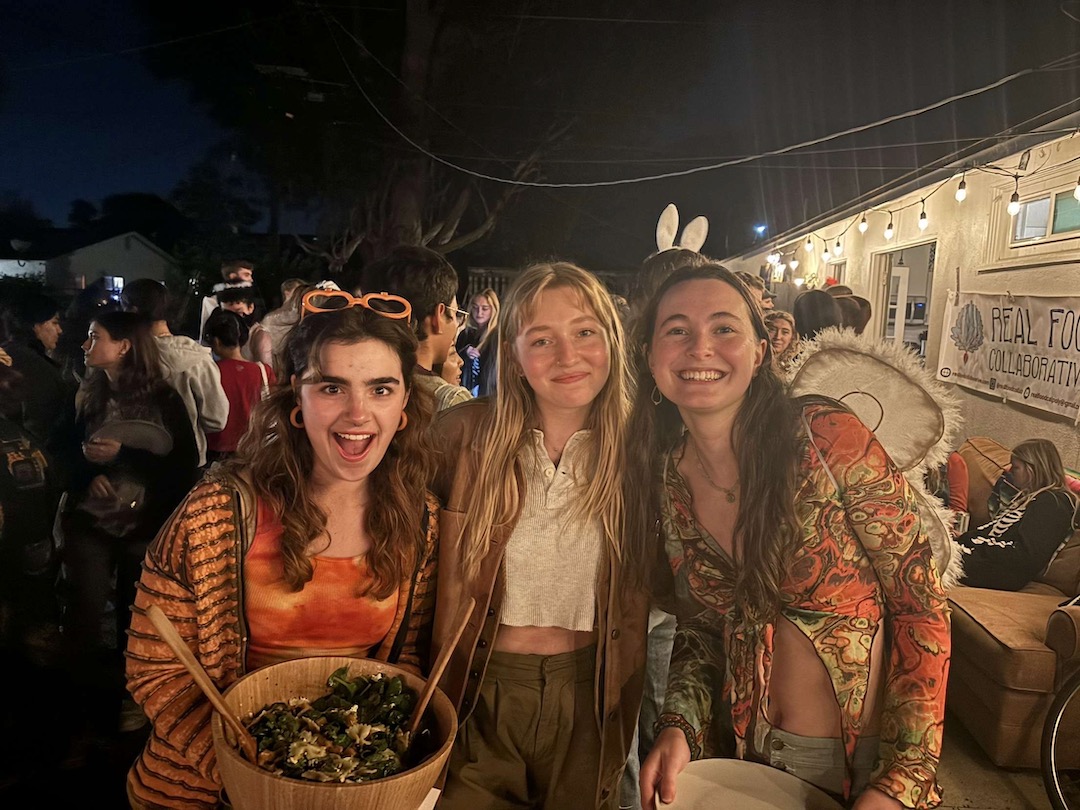
Garden Club
Dedicated to sustainable and organic food accessibility, too, is Cal Poly’s Garden Club, which hosts weekly Sunday morning workdays on the Student Experimental Farm (SEF) as well as potluck events that connect students together with a shared meal.
Located off of Mount Bishop Road, the SEF provides an inviting space for anyone to immerse themselves in their gardening interests or to simply get outside in nature. More importantly, it urges students to integrate more organic and freshly-grown foods into the meals they eat.
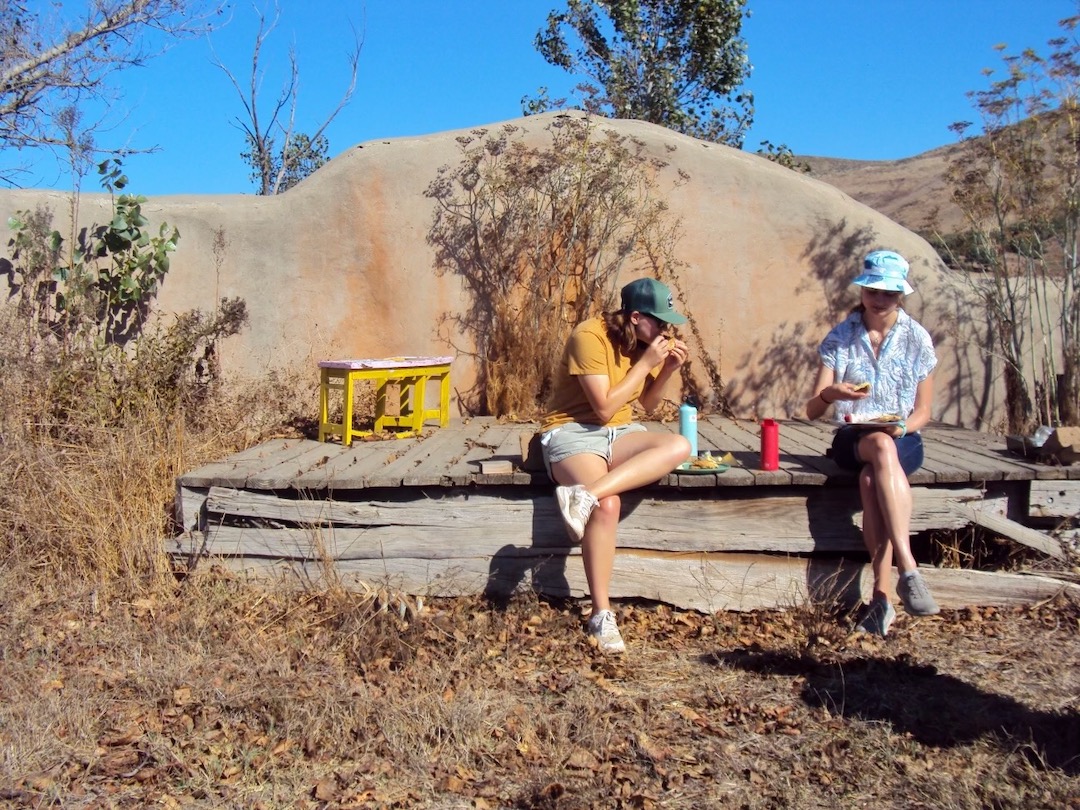

The variety of organic produce grown at the farm can be a driving force behind student creativity with the meals they make, “especially if it’s food that you’ve grown yourself, as there’s this sense of pride,” communication studies junior Aideen Cox said.
In the dedicated Garden Club discord section titled “Garden Creations,” members share foods they’ve made having incorporated produce from the SEF.
“One person took a bunch of cabbage, made kimchi with it and brought it up to the farm to share with everyone,” city and regional planning junior Kylie Preciado said.
It is also at the communal potlucks where people get to try new dishes and find inspiration in the ways their fellow club members incorporate certain ingredients.
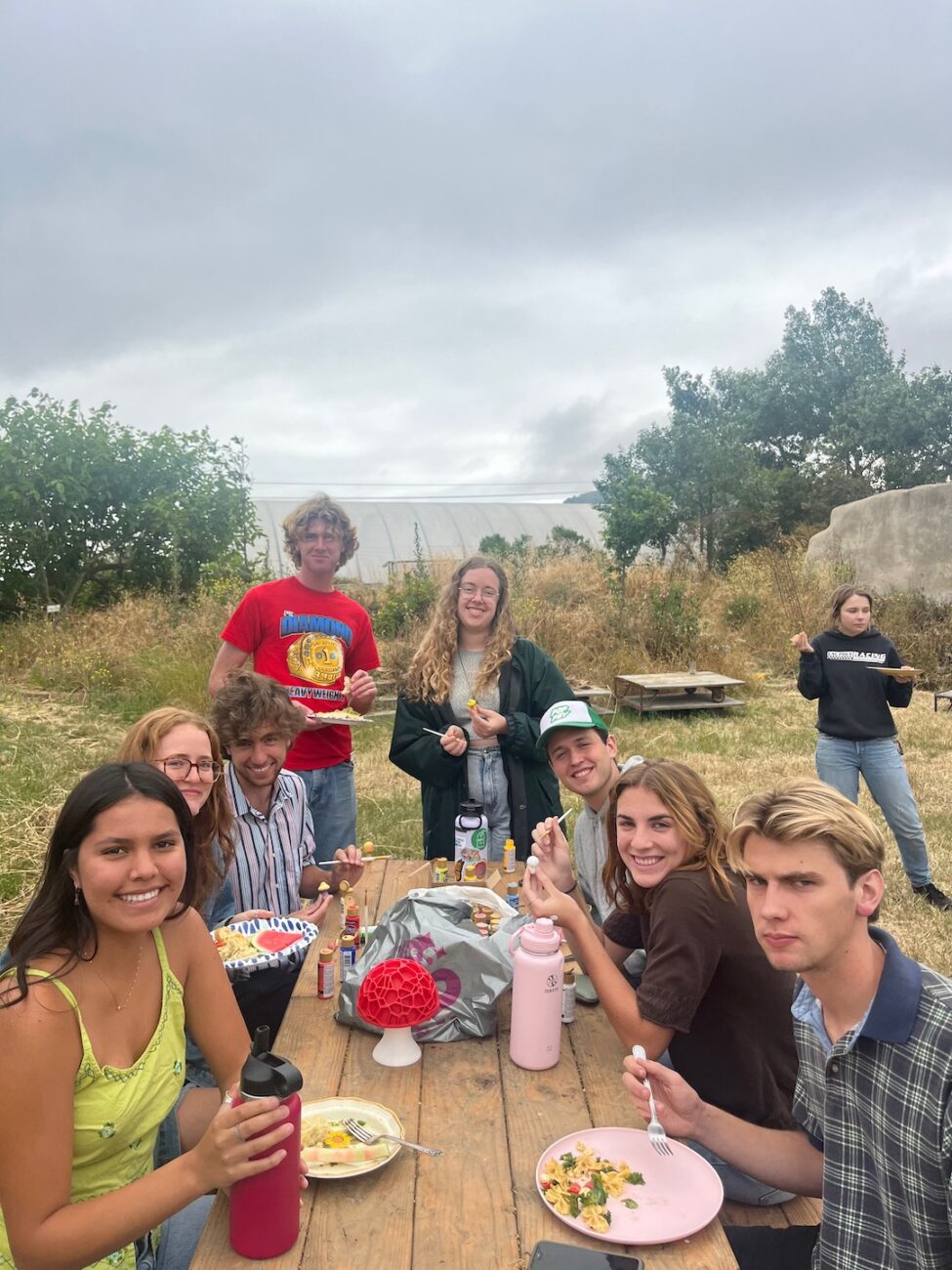
Club president and environmental management and protection senior Ben Sureman believes the value in potlucks lies in their ability to gently force you to cook and eat better.
“Potlucks are unique for most college students’ diets, because they have an event where they prepare a dish and bring it to share with lots of people who also spent time and energy making good food,” Sureman said. “I find I eat better there than I normally do.”
In recent months, Garden Club has hosted a potluck at Front Porch, a coffee shop on campus, in collaboration with RFC. Club members also brought out grills to the SEF one Sunday morning to enjoy a pancake breakfast before the workday.
The Dinner Party
For public health sophomore Gabriella Lazaro, food plays a big role in how she connects with those around her, with the intimate setting of a dinner party – which she regularly hosts and attends – opening up a calm and welcoming space for friends to get lost in conversation and indulge in a plate of home-cooked food.
While dishes are cooking in the kitchen, chairs are brought outside as candles and flowers are scattered about the table. Having enjoyed Thanksgiving and Christmas dinner parties in her hometown and a recent back-to-school gathering in the backyard of her new San Luis Obispo house, Lazaro believes there is great value in eating around a table.
“It establishes a really good environment that allows you to have more attention and really engage with each other, so as a person talking you feel like you’re being heard,” Lazaro said.
With bowls of food being passed around as conversation flows freely about the table, dinner parties “are a place for everyone to be in the moment and not have to worry about anything else other than what’s happening at the table,” Lazaro said.
Carving out an hour or two where friends can relax, eat and laugh together is crucial to staying connected during the week, especially because everyone has different school schedules. It is through food that Lazaro and her friends stay grounded and come together to celebrate one another.
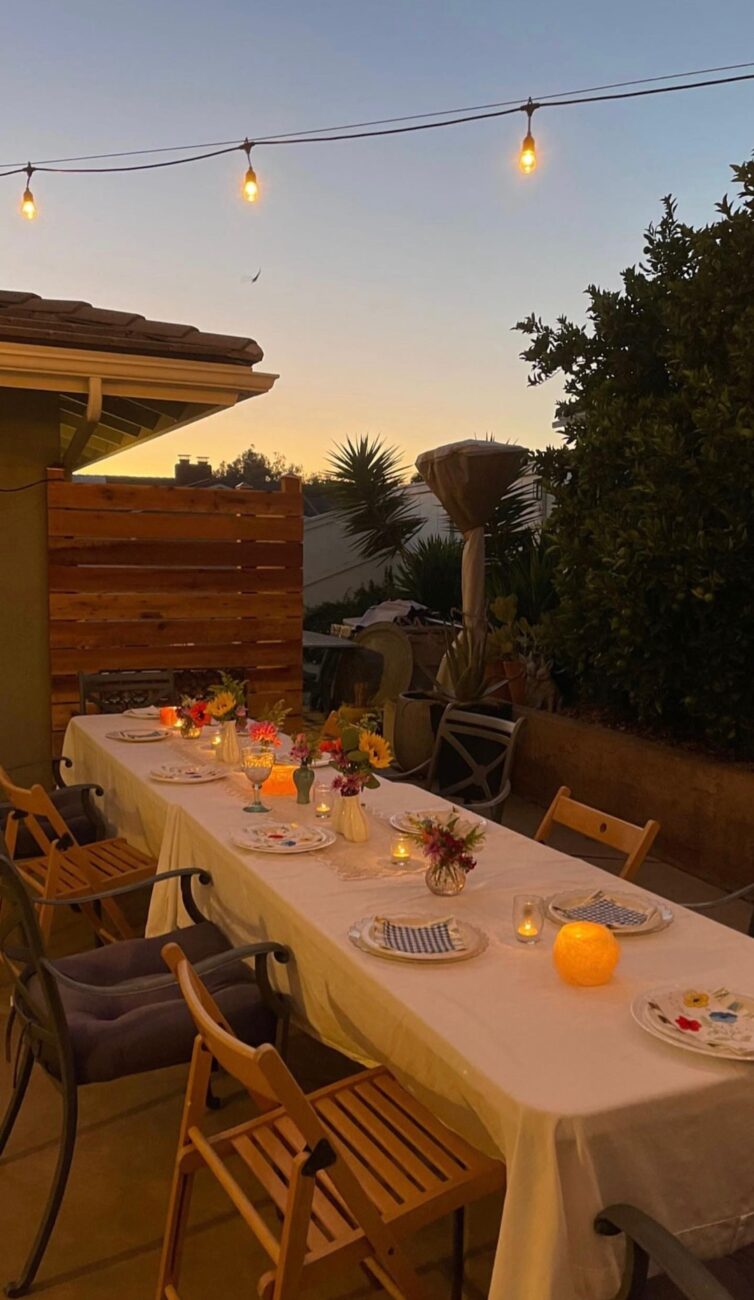


Hear what Cal Poly’s cultural clubs have to say
The effortless and natural ways in which food blends its way into friends, families and cultures, like particular spices do to a dish, is why since the beginning of time it has been a powerful source of human connection.
For microbiology sophomore and Cal Poly Black Student Union (BSU) club member Leanne Ngounou, food is comfort.
As a college student, it is when she misses the banter or feeling of home the most that indulging in a meal can take her back to those happy memories, Ngounou said at BSU’s booth during CultureFest, held on campus at the University Union on Oct. 21, 2023.
Last year, BSU held an event that gave attendees space to share the foods of their culture and Ngounou and her fellow club members gave and watched presentations including one about the origins of gumbo.
“Gumbo is one big meal that has been shared throughout the diaspora,” Ngounou said. “It’s a comfort meal that everyone knows and has their own version of.”
Along with being a comfort, food is its own language, one that is spoken not through words but rather by the time and thought required to cook a meal, as well as the ingredients and intricacies that make up each and every taste.
“You can always share feelings through a pallet,” Ngounou said. “Communicating is so hard, especially in my culture. In my family, we’re not big on apologies but we can say a lot in a meal. It’s like ‘come eat,’ and you’ll know by what’s cooked and what’s on the table that you’re loved.”
For Diego Puga Escobar, communications sophomore and publicity chair of Latinx Culture Association (LCA), food is not only a source of fuel for one’s body but also the fuel that kindles human connection.
“They say music is the universal language, but I feel like food is that language you can taste,” Escobar said.
Each week LCA comes together and covers various Latin cultures and countries, ending each meeting with a dish from that corresponding country. While selling fresh fruit with Mexican seasonings like tajin and chamoy at CultureFest, Escobar and his fellow club members said they find great value in the large variety of cultural clubs on campus.
“They’re a nice constant to have here, especially with our campus being a predominately white institution,” Escobar said. “Being able to have at least one consistent thing you can go to, whether it’s once a week or every other week, and having that community where you can be yourself with no restrictions is great.”
Nearby at CultureFest, the scents emanating from the South Asian Student Association’s (SASA) booth were rich with spices as club president and journalism senior Krithi Sankar and club social media manager and materials engineering senior Ananya Patil were chopping potatoes to add to the papdi chaat they were selling.
For Sankar and Patil, too, food is just one essential part of their culture and a powerful way to feel connected to their roots.
“These are some of the foods I remember tasting in India when I’d go there over the summer every other year as a kid,” Sankar said.
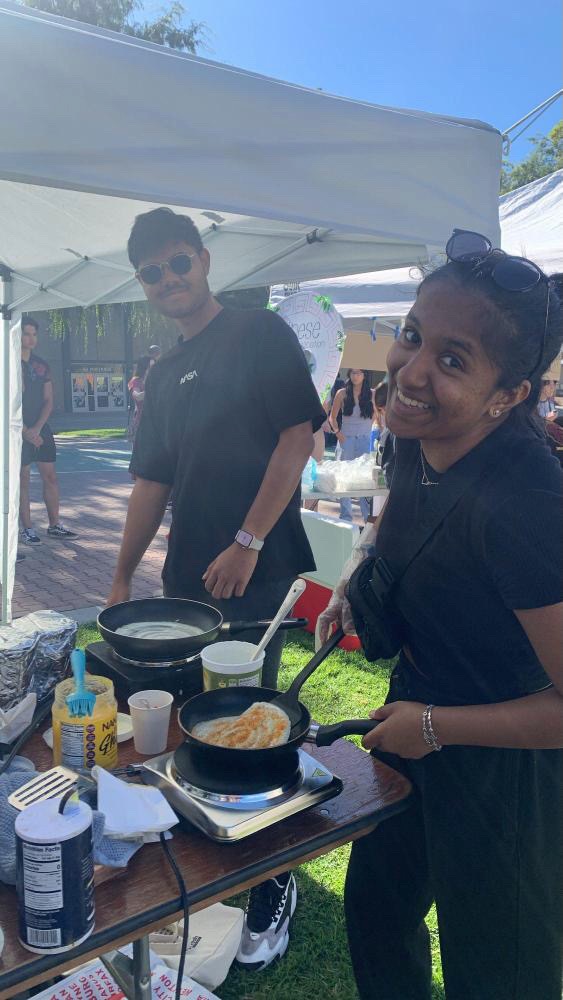

In recent years, SASA collaborated with the Cal Poly Japanese Student Association (JSA) to host a cultural food exchange. Sankar and fellow club members made samosas and kulfi, a south asian ice cream with saffron and pistachios, and JSA shared their food as well.
“Being able to mix that among people with different identities was one of the best ways to bring people together,” Sankar said.
Not far from Sankar and Patil’s booth, Sai Rama Balakrishnan, software engineering junior and media director for the Indian Students’ Association (ISA), was selling Podi dosa, Masala dosa and Filter coffee with fellow ISA club members.
Acknowledging the challenge it is for college students to make these specific South Indian dishes without all the ingredients, Balakrishnan is proud that ISA is a space where people can enjoy their cultural foods.
At the last ISA potluck, more than 50 new people came.
“We told a bunch of freshmen at the club showcase that we were going to give them free South Indian food,” Balakrishnan said. “We had so many people come in because they were already missing home food, so the fact we could cook the dishes they really missed was great.”
Food serves as a significant cultural element in the hispanic community, too, according to Isabella Jimenez-Melendrez, architectural engineering senior and club president of Cal Poly’s Society of Hispanic Professional Engineers (SHPE).
“We have a saying in Spanish. We say, ‘La cocina es el corazón de la casa,’ which translates to ‘The kitchen is the heart of the home,’” Jimenez-Melendrez said.
What Jimenez-Melendrez and the rest of SHPE, as well as the diverse and abundant cultural and sustainability clubs on campus, can all agree on is that food is the fuel igniting the fire of human connection.
Potlucks and dinner parties provide opportunity for students to bring their eclectic dishes and find connection through the foods scattered around the communal table. Farm workdays and organic produce subscription boxes call on students to integrate healthier ingredients into their meals and become more connected to where their food comes from. Cultural clubs and events invite students to take part in welcoming and familiar spaces, where collaboration and comfort are embraced with every meal shared.
Food is at the center of it all.


